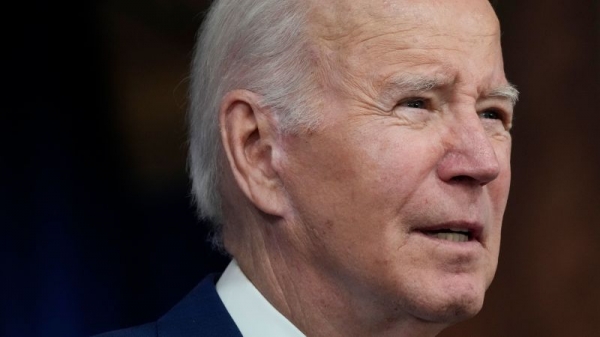American families speak out about Hamas’ ‘psychological warfare’ as they call for loved ones held hostage to be released

Members of five American families whose loved ones were kidnapped on October 7 described the “psychological warfare” from Hamas as they’ve been waiting for any news to emerge about their children and relatives.
The family members spoke to CNN’s Jake Tapper in an exclusive interview in Washington, DC, Wednesday, where they are urging the international community to prioritize the release of the rest of the hostages still held in Gaza.
They described how it felt hearing accounts of the dire conditions of the hostages who have been released, while many said they have not had any updates on their loved ones still in Gaza.
“Fifty-four days, we have no idea on the physical condition, as well as sign of life. This is against any international law, even in times of conflict,” said Ruby Chen, whose son Itay Chen is being held.
The family members were in Washington this week attending a roundtable with the House Foreign Affairs Committee and other meetings. Some had seen their relatives released but most were still waiting – for not just the prospect of release but for the Red Cross to be granted access to the hostages still in Gaza.
“It’s really tough, it’s really tough,” said Orna Neutra, whose son Omer Neutra is being held hostage. “We’re happy to see anyone being released, but for me personally, Omer is a man, he’s my son. He’s 22 years old. He’s not in the conversation yet. And it’s really bad.”
Several of the family members said they wanted the international community – both governments and the Red Cross – to push more forcefully on behalf of their loved ones, to speak out against the terrible conditions they’re experiencing and for their release.
“The whole world needs to speak up,” said Ronen Neutra, father of Omer Neutra. “We don’t feel that the international community is appalled the way they should be. It’s a humanitarian crisis at the highest level and they don’t seem to be enough outrage out there.”
The families acknowledged there’s been a backlash against Israel over the war in Gaza, but argued that the world should see the crisis as a humanitarian problem, not a political one.
“When we talk about it, none of us are talking about this politically, we’re talking about this as a human crisis,” said Liz Hirsh Naftali, the great aunt of 4-year-old Abigail Mor Edan, who was released Sunday. “For me, the issue of how do we finish with the work of Hamas and getting rid of them – let’s put it aside for a second. And let’s just focus on getting these 150 folks – people, our family, our relatives – out. And getting them safe. That should be everyone’s priority right now.”
Chen said he believed that the families of the approximately 240 hostages initially kidnapped on October 7 collectively helped push the Israeli government from focusing on eliminating Hamas to rescuing the hostages.
“I think the fact that the families have come together, we each feel collectively that we have 240 new family members,” Chen said. “Being able to unite around the hostage issue and getting the people of Israel behind us has changed the perception of the government of Israel, understanding that the only topic that the government of Israel is going to be judged by the population is how many hostages, how fast are they able to get them out?”
The family members praised the Biden administration’s efforts to secure the release of hostages, but also acknowledged they would have liked to have seen more Americans released so far, while other countries have seen more of their citizens released.
On Wednesday, one American hostage was released, though it was not a member of the five families who spoke to CNN Wednesday.
“The Biden administration, they do more than enough since the first day, but the math shouldn’t fool us,” said Adi Alexander, the father of Edan Alexander, who is still held in Gaza.
The family members spoke warmly of their relatives and the lives they led before being kidnapped October 7.
“Edan is American kid. He graduated last year from Tenafly (New Jersey) high school,” said Yael Alexander, whose son is 19 years old.
“He doesn’t belong there,” Adi Alexander said. “He belongs with us, with the family.”
This story has been updated with additional developments.



Leave a Comment